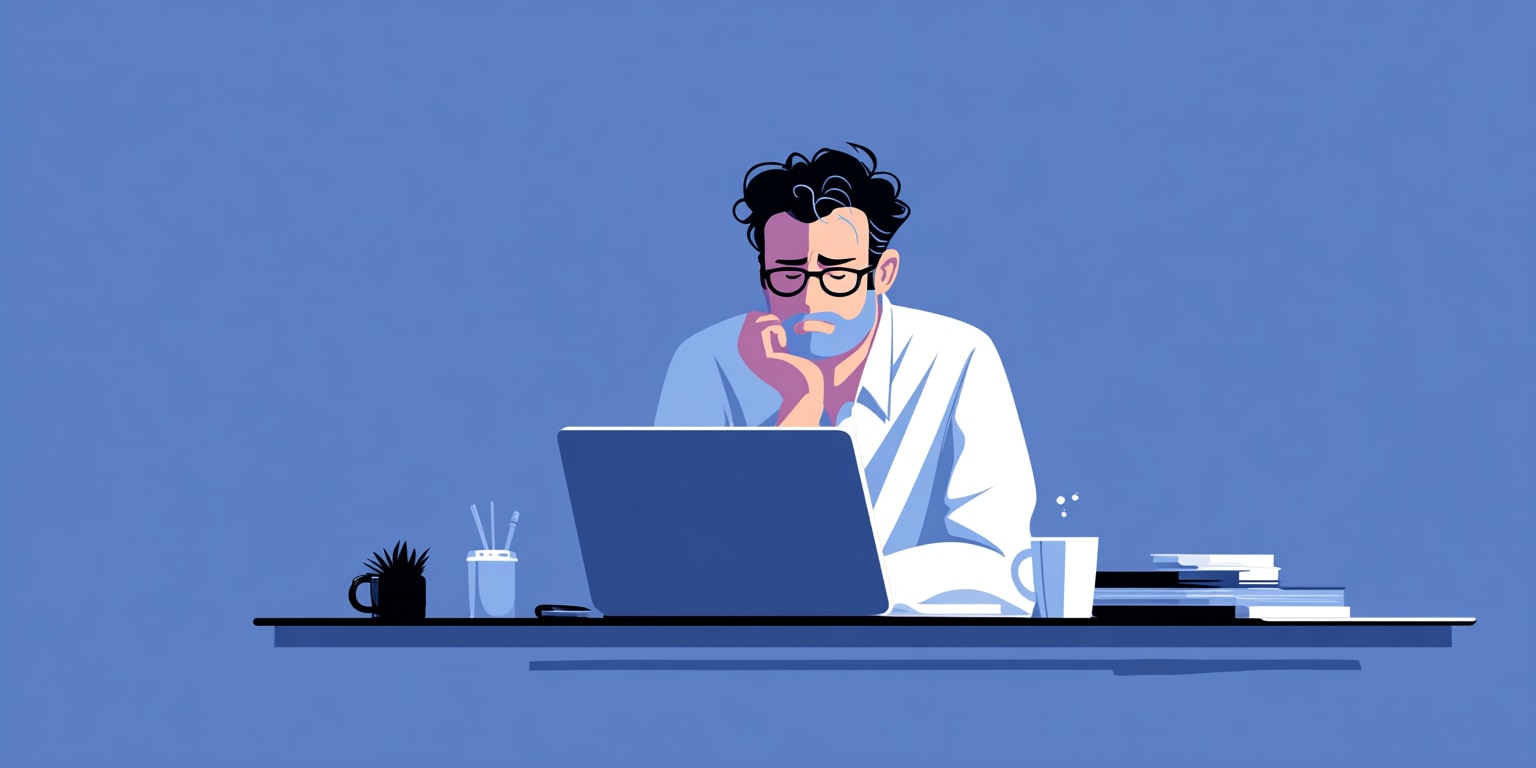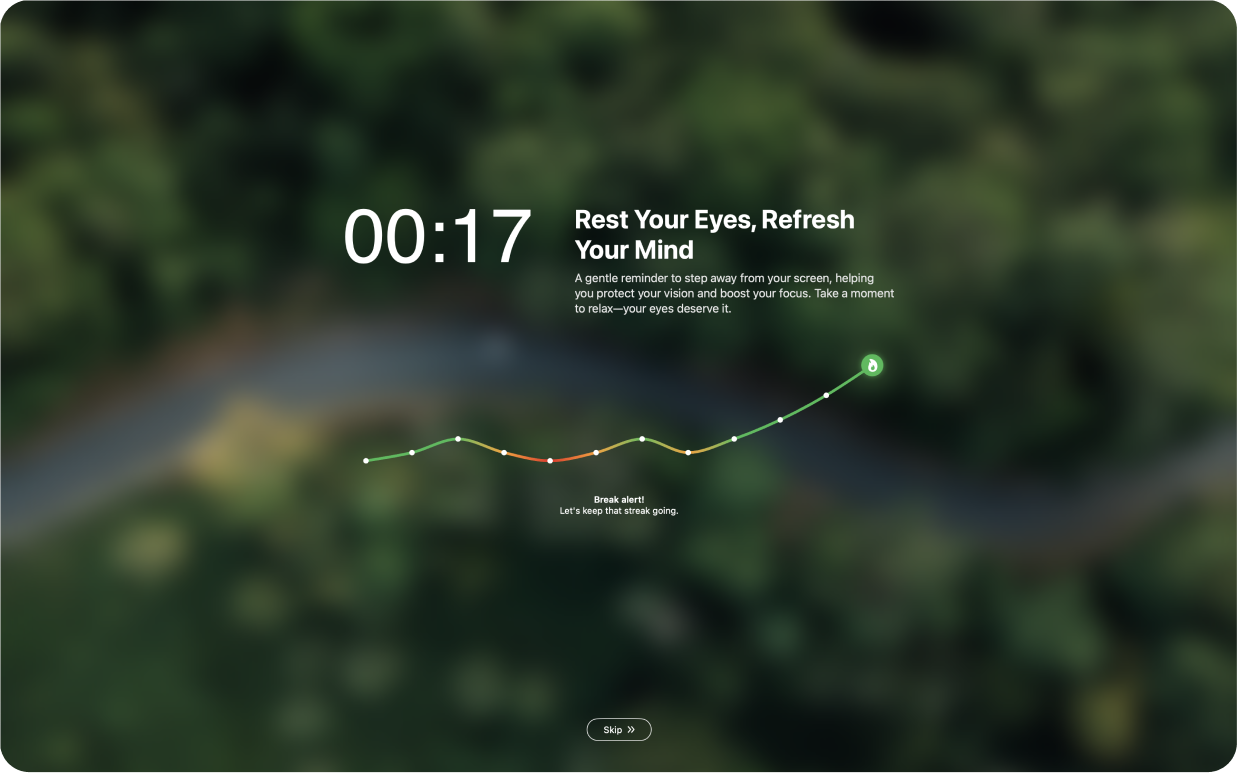
Why Computer Work Exhausts You More Than Physical Labor (And What to Do About It)
💡 Key Takeaways
Mental fatigue from computer work is real, your brain works just as hard as your muscles during physical exercise
"Easy" desk work actually involves constant micro-decisions that drain your cognitive resources throughout the day
Simple break strategies can restore your mental energy within just 5-10 minutes
Your exhaustion is a sign of hard work, not laziness. It's time to give yourself credit and take action
You've spent the day answering emails, attending video calls, and working on spreadsheets. Nothing physically demanding, nothing that should leave you wiped out. Yet here you are at 6 PM, feeling like you've run a marathon. Your brain feels foggy, your body is drained, and you can barely summon the energy to make dinner.
Sound familiar? You're not alone, and more importantly, you're not lazy.
The Hidden Mental Marathon You Run Every Day
That "easy" computer work? It's actually a cognitive triathlon your brain runs from 9 to 5. Every email you read forces your brain to process language, assess priority, and decide on action. Every Zoom call requires you to interpret facial expressions, follow complex conversations, and manage your own presentation simultaneously.
By lunch, you've already made hundreds of micro-decisions. By evening, your mental gas tank is empty.
Why Your Brain Treats "Simple" Work Like Heavy Lifting
The Attention Switching Tax
Modern computer work forces your brain to constantly switch between tasks. Even brief interruptions can increase the time needed to complete a task by up to 25%.
Every time you switch from your document to check Slack, then back to email, your brain has to:
- Save the context of what you were doing
- Load the new context
- Rebuild focus on the new task
- Switch back and rebuild the original context
It's like doing mental burpees all day long.
The Paradox of Choice Exhaustion
That simple task of organizing your desktop? You just made 47 decisions about which files to keep, where to put them, and what to name the folders. Making too many decisions - even tiny ones - creates measurable mental fatigue.
Your brain doesn't distinguish between choosing a life partner and choosing where to save a document. Both require cognitive energy.
Screen-Induced Cognitive Load
Staring at screens creates what researchers call "continuous partial attention." Knowledge workers check email every 6 minutes on average. Your brain never gets a chance to rest because it's constantly processing visual information and staying alert for notifications.
The Physical Toll of Mental Work
Your Body's Silent Stress Response
Sitting still doesn't mean your body is resting. Computer work triggers a low-level fight-or-flight response that keeps your muscles tense and your stress hormones elevated. Computer use increases cortisol levels similar to moderate physical stress.
You're literally holding your body in a state of controlled tension for 8 hours straight.
The Energy Drain of Poor Posture
Maintaining any position - even sitting - requires constant micro-muscle adjustments. When your posture is off, your body works overtime to keep you upright. Forward head posture alone can increase the workload on your neck muscles by 300%.
No wonder you feel like you've been carrying invisible weights all day.
Breaking the Exhaustion Cycle: Strategies That Actually Work
The 20-20-20 Power Reset
Every 20 minutes, look at something 20 feet away for 20 seconds. This isn't just about eye health - it's a complete cognitive reset. When you shift your visual focus to distance, you activate your parasympathetic nervous system, which signals your brain to restore and recover.
DeskRest Tip: Set automatic reminders for these micro-breaks. You'll be amazed how much mental clarity you regain with such a simple shift.
The 2-Minute Presence Practice
When fatigue hits, try this instead of reaching for another coffee:
- Close your eyes for 30 seconds
- Take 5 deep breaths, focusing only on the sensation of breathing
- Gently roll your shoulders and neck
- Open your eyes and notice one thing you can see clearly
Strategic Task Sequencing
Arrange your day to work with your brain's natural energy patterns:
- Morning (8-10 AM): Deep, creative work when cortisol is naturally high
- Mid-morning (10 AM-12 PM): Decision-heavy tasks while mental energy is still fresh
- Afternoon (1-3 PM): Routine tasks during the natural energy dip
- Late afternoon (3-5 PM): Administrative work when focus naturally fragments
The 90-Minute Focus Window
Your brain operates on 90-minute ultradian rhythms. Working in 90-minute focused blocks with 15 or 20-minute breaks optimizes both productivity and energy conservation.
Instead of grinding through 4-hour marathon sessions, work in natural sprints.
Reframe Your Relationship with "Easy" Work
Give Yourself Credit
Knowledge work is real work. Managing information, making decisions, and staying focused for hours requires genuine skill and energy. You wouldn't expect a construction worker to feel fresh after 8 hours of physical labor - why expect it from 8 hours of mental labor?
Recognize the Invisible Load
Beyond your official tasks, you're constantly:
- Filtering information for relevance
- Managing digital overwhelm
- Maintaining professional presence on video calls
- Remembering context across multiple projects
- Adapting to changing priorities
Build Recovery Into Your Identity
High performers don't just work hard - they recover strategically. Elite athletes spend 80% of their time in recovery for a reason. Your brain deserves the same respect.
The Science of Strategic Recovery
Why Breaks Aren't Laziness
Taking breaks actually increases the quality of work output. When you rest, your brain consolidates information, makes creative connections, and restores mental energy for better decision-making.
Breaks aren't time stolen from productivity - they're investments in it.
The Compound Effect of Micro-Recovery
Just like compound interest, small breaks throughout the day create exponential energy returns. A 2-minute break every hour prevents the 2-hour recovery period you need after complete mental exhaustion.
DeskRest Tip: Use smart break reminders that detect when you're actually working versus watching videos or in meetings. This ensures breaks happen when you need them most, not when they'll interrupt important content.
Your Next 48 Hours: The Exhaustion Recovery Plan
Day 1: Awareness
- Track how you feel every 2 hours using a simple 1-10 energy scale
- Notice when mental fatigue hits hardest
- Identify your most draining tasks
Day 2: Implementation
- Take one 2-minute break every hour
- Try the 20-20-20 rule three times
- End your workday with a clear shutdown ritual
Beyond: Building Sustainable Energy
- Create physical boundaries between work and rest spaces
- Develop a pre-work routine that signals "focus time" to your brain
- Build a post-work ritual that signals "recovery time"
The Bottom Line
Your exhaustion after computer work isn't weakness - it's evidence of real cognitive labor. Your brain has been solving problems, making decisions, and processing information all day. That's genuinely hard work.
The solution isn't to power through the fatigue or feel guilty about feeling tired. It's to work with your brain's natural rhythms, not against them.
Challenge for This Week: Give yourself permission to take breaks without guilt. Notice how much more energy you have when you honor your brain's need for recovery.
DeskRest Tip: Start with automatic break reminders that respect your workflow. When the app suggests a break, trust that your brain needs it - even if the work feels "easy." Your future self will thank you for the restored energy and sharper focus.
Remember: Feeling tired after mental work isn't a character flaw. It's biology. And now you know how to work with it, not against it.
Elevate Your Workday with DeskRest
Experience a transformative approach to your daily work routine. DeskRest seamlessly integrates into your workflow, offering intelligent break reminders, posture alerts, and focus-enhancing tools. Boost your productivity, protect your well-being, and enjoy a more balanced work life.
